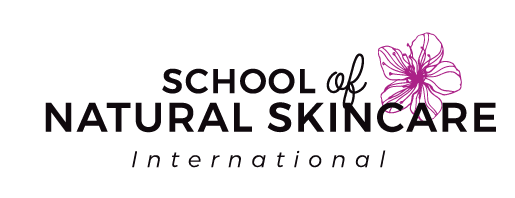What is Shea Butter and Where Does it Come From?
Shea butter is a fat that is extracted from the nuts of the Karite tree (Vitellaria paradoxa), also called the shea tree or African butter tree. This tree is native to the West African savannah, and it is found in countries such as Ghana, Burkina Faso, Mali, Ivory Coast, and Nigeria. The shea tree grows up to 60 feet tall, and it can take up to 20 years for it to start producing fruit.
The fruit of the shea tree is a green, plum-like fruit that contains a nut inside. The nut is then harvested and processed to extract the shea butter. Shea butter is a yellowish or ivory-colored fat that has a creamy texture and a nutty aroma.
Shea Butter and Sustainable Communities
Shea butter is often referred to as “women’s gold” because it is primarily produced by women in rural communities in Africa. The production of shea butter is an important source of income for these communities, as well as a way to empower women and promote gender equality. Interestingly it is also a brilliant and beautiful gold color!
The production of shea butter is also environmentally sustainable. The shea tree is drought-resistant, and it can grow in poor soil conditions, making it a valuable resource for communities in arid regions. The shea tree is also important for the local ecosystem, providing shade and shelter for other plants and animals.
Shea Butter is therefore a hugely valuable commodity. It is highly valued in skincare and haircare and helps the communities where it comes from to build sustainable economies whilst at the same time offering benefits to the wider ecosystem in which it lives.
Properties and Benefits of Shea Butter for Skincare
Shea butter is packed with nutrients that are beneficial for the skin. It contains vitamins A, E, and F, as well as fatty acids that help to nourish and moisturize the skin. Here are some of the key properties and benefits of shea butter for skincare:
Moisturizing:
Shea butter is an excellent moisturizer that can help to soften and smooth dry, flaky skin. It helps to lock in moisture and prevent water loss, which helps to keep the skin hydrated, leaving the skin soft and supple.
Anti-inflammatory:
Shea butter has anti-inflammatory properties that can help to reduce redness, swelling, and irritation. It is particularly effective for people with sensitive or reactive skin.
Healing:
Shea butter can help to promote wound healing and reduce scarring. It contains compounds that have been shown to promote cell regeneration and collagen production, which can help to repair damaged skin.
Anti-aging:
Shea butter contains antioxidants that can help to protect the skin from free radical damage, which can lead to premature aging. It can also help to improve the appearance of fine lines and wrinkles.
Shea butter is suitable for all skin types, most especially dry, dehydrated, normal, sensitive, combination and aging/mature skin.
It is just important that you understand the characteristics of each skin type and how to formulate skincare products for different skin types because this can help you to make sure you create the best products, with the right ingredients, in the right quantities to deliver the best possible results. You’ll want to take a look at our article, Formulating Natural Skincare Products For Dry Skin: Causes, Characteristics & Our Top Recommendations for more information.
It can be helpful for oily or acne prone skin to help soften and smooth the skin, lock moisture in, build a strong barrier repair function, and promote healthy skin growth. However, some people may find it leaves a greasy feeling on the skin if too much is used or if it is used in the wrong routine. See our article, How to Achieve Healthy, Glowing Skin: Skincare Tips for Oily and Acne-Prone Skin for more information about that.
Typical Skincare Products That Contain Shea Butter
Shea butter is used in a wide range of skincare products, including moisturizers, body butters, lip balms, and soaps. It is suitable for all skin types, but it is particularly beneficial for dry or sensitive skin. Its moisturizing, nourishing, and protective properties make it a popular ingredient in natural and organic skincare products.
Body butters:
Shea butter is a popular ingredient in body butters due to its moisturizing and nourishing properties. Body butters containing shea butter can help to soften and hydrate dry or rough skin, leaving it feeling smooth and supple.
Hand creams:
Shea butter is often found in hand creams due to its ability to moisturize and soothe dry, cracked skin on the hands. The rich texture of shea butter can provide lasting hydration to the skin, making it a great ingredient for those with dry or sensitive skin.
Facial moisturizers:
Shea butter is also commonly used in facial moisturizers due to its ability to deeply moisturize and nourish the skin and aid the process to keep the skin hydrated by reducing transepidermal water loss (TEWL). It can help to improve the texture and tone of the skin, reducing the appearance of fine lines and wrinkles.
Lip balms:
Shea butter can be found in many lip balms due to its moisturizing and protective properties. It can help to soothe and moisturize dry, chapped lips, leaving them feeling soft and smooth.
Body washes and soaps:
Some body washes and soaps contain shea butter for its moisturizing and cleansing properties. Shea butter can help to cleanse the skin while also providing nourishment and hydration.
We teach students to use Shea butter in their natural & organic skincare products in all of our skincare focused courses. To learn more about formulating your own natural skincare products, you’ll want to take a look at and join our Diploma in Natural Skincare Formulation.
If it is making soaps that interests you the most, then you’ll want to join our Diploma in Soap Making or Certificate in Cold Pressed Soap Making.
Remember to always research your ingredients first and check for any contraindications that might mean they are not suitable for you to use. Also, always patch test new ingredients and products and to consult with a skincare professional if you have any concerns or questions about your skincare routine.
Benefits of Shea Butter for Hair
Shea butter is also extremely useful for haircare! It is a versatile and beneficial ingredient, providing moisturizing, softening, and protective benefits for all hair types.
Here are the main benefits of shea butter for the hair:
Moisturizing:
Shea butter is rich in fatty acids and vitamins that help to moisturize and nourish hair strands, making it a great ingredient for dry or brittle hair.
Softening:
Shea butter can help to soften hair and make it more manageable, reducing breakage and tangles.
Scalp health:
Shea butter contains anti-inflammatory properties that can help to soothe and heal the scalp, reducing itchiness and dandruff.
Protection:
Shea butter can provide a protective barrier for hair, shielding it from heat damage, UV rays, and environmental stressors.
Hair growth:
Some people believe that shea butter can promote hair growth by stimulating circulation and providing essential nutrients to hair follicles.
The best haircare products that contain shea butter
Shea butter can also be used in a variety of ways to benefit hair.
Here are some examples:
Shampoos and conditioners:
Many natural and organic haircare brands use shea butter in their shampoo and conditioner formulas to provide moisturizing and nourishing benefits.
Leave-in conditioners:
Shea butter is often found in leave-in conditioners to help detangle and soften hair.
Hair oils:
Shea butter can be combined with other oils, such as coconut oil or argan oil, to create a nourishing hair oil that can be applied to the ends of hair to prevent breakage and split ends.
As a hair mask:
Shea butter can be melted and applied as a hair mask, left on for several minutes, and then rinsed out to help moisturize and soften hair.
In hair styling products:
Shea butter is a common ingredient in hair styling products, such as leave-in conditioners, hair creams, and hair oils, to provide moisturizing and protective benefits.
As a scalp treatment:
Shea butter can be massaged into the scalp to soothe and nourish the skin, helping to reduce itchiness and dandruff.
To learn how to formulate your own natural & organic shampoos, conditioners, hair treatment and styling products, enroll in our Diploma in Natural Haircare Formulation! Here you’ll learn to formulate your own complete range of haircare products like a professional 🙂
Refined vs Unrefined Shea Butter: Which is Best for Your Skin And Hair?
Refined shea butter is processed to remove any impurities, such as debris, odors, or color variations. This process can result in a more uniform and smoother texture, making it easier to apply to the skin and hair. However, refining can also strip the butter of some of its natural beneficial compounds, such as vitamins and minerals.
Unrefined shea butter is raw and unprocessed, and therefore contains all of its natural nutrients and properties. It has a rougher texture and a distinct nutty scent, which some people may find unpleasant. However, unrefined shea butter is often considered to be more effective for skincare and haircare purposes, as it retains its full range of moisturizing, anti-inflammatory, and healing benefits.
Ultimately, the choice between refined and unrefined shea butter depends on personal preference and skincare or haircare needs. If you prefer a smoother texture or are sensitive to strong smells, refined shea butter may be the better option. However, if you prioritize the natural properties of the butter and are willing to tolerate a rougher texture and smell, unrefined shea butter may be the way to go.
If you’d like to find out more about refined vs unrefined, take a look at our article, Unrefined vs refined carrier oils: which is best?.
Considerations When Using Shea Butter
While shea butter is generally safe and well-tolerated, there are a few considerations to keep in mind when using it for skincare:
Allergies:
People with nut allergies should avoid using shea butter, as it is derived from a tree nut.
Texture:
Shea butter has a thick and heavy texture, which some people may find greasy or difficult to absorb. It is best used in small amounts or mixed with other ingredients to create a lighter, more spreadable texture.
Storage:
Shea butter should be stored in a cool, dry place to prevent it from melting or becoming rancid. It has a shelf life of around one to two years.
Get Started Formulating Professional Quality Skincare and Haircare Products Today
Shea butter is a natural, sustainable, and luxurious ingredient that has been used for centuries in African skincare. It is known for its moisturizing, anti-inflammatory, and healing properties, and it is suitable for all skin types and hair types. By using shea butter in your skincare and haircare products, you’ll not only benefit your skin, but you’ll also support sustainable and thriving local communities in Africa.
So why not try incorporating shea butter into your skincare and haircare routine? Your skin and hair, and the communities that produce it will thank you.
Find out more about our Diploma in Natural Skincare Formulation here.
Also, learn about our Diploma in Natural Haircare Formulation here.
And discover our Diploma in Soap Making here.
If you have any questions, please do reach out to our customer service team using hello@schoolofnaturalskincare.com
FREE GUIDE:
The Beginner's Guide to Formulating Natural Skincare Products (From scratch, like a professional!)
Start creating your own natural skincare products
from scratch - rather than simply following recipes!
Exclusive for our newsletter subscribers. Sign up now.
Download this fabulous guide and you'll learn:
- What formulating is and why you need to be doing it!
- The difference between following recipes and formulating your own products.
- How to formulate like a pro! Seven top tips for becoming a confident skincare formulator.
- Our step-by-step process to designing products people love.
- Four easy ways to personalize your skincare products.
- Choosing the right carrier oils for your beauty products.
PLUS: Receive two free worksheets!
















